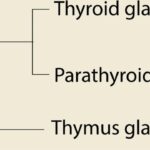It is normal for a lot of individuals to have heart palpitations at least once in their life. These sensations in the chest may be described as a feeling of the heart beating hard, the heart doing somersaults, or the heart is racing. As much as heart palpitations can be caused by a few reasons, some ask, “Can allergies cause heart palpitations?” This article will will provide all the insight you need to know.
What Are Heart Palpitations?
Palpitations is the aerobic and sometimes distressing attention to one’s heartbeat. Among practical symptoms, one’s pulse might be felt racing, or skipping. This may be as a result of several reasons, ranging from anxiety and caffeine consumption, to strenuous activity or even lack of fluids.
The majority of palpitations are of no medical concern. However, in some individuals, a recurrent beating feeling in the chest or neck may occur. The palpitations may be accompanied with ringing in the ears, dizziness, or chest pain, in which case it suggests an underlying problem exists.
This is particularly true if you have allergies and keep asking yourself whether they might not be causing your heart rate to increase.
Understanding allergies and their effects on the body
Allergies develop when one’s immune system perceives an external or internal substance known as an allergen as dangerous. Pollen, animal claws, multiple foodstuffs and dust are some of the most common allergens.
When an individual comes into contact with such substances, the body responds through immune chemicals, including histamine. The response leads to allergy signs such as coughs, runny noses, and watery eyes, among other extreme forms of the reaction.
However, allergies have other impacts on the cardiovascular system that are less spoken about. For some, they notice a change in the heart rate as well as the blood pressure, and in some individuals, this can even result in heart palpitations.
This happens more often with acute allergies and/or allergic reactions in which the body produces more of the hormone adrenaline that turns on the heart and can lead to those annoying flutters in your chest.
Can Allergies Cause Heart Palpitations?
For instance, you might be asking yourself, “What’s the connection between allergies and heart palpitations?” The reason is that the body tends to produce more histamine and adrenaline during an allergen exposure. These factors may produce some physiological changes that lead to palpitation.
Histamine Release
Histamines are substances that cause dilation and engorgement of blood vessels in certain localities during an allergic event, thus altering blood pressure and heart rate. Such racing of the heart, which is short-lived as a rule, gives a sensation of palpitations.
Adrenaline Rush
When faced with allergic reactions or allergens, the body is capable of releasing the sympathomimetic neurohormone known as adrenaline. Heart palpitations, which are at times triggered by psychological stress due to anxiety, fear, or any other anxious states, are often due to the action of this specific hormone.
Anaphylactic Shock
Anaphylaxis and other extreme allergic responses induce shock in the system, often causing turbulence in blood circulation, heart rate, and blood pressure levels. Anaphylaxis in particular necessitates immediate help since it can be severe or even fatal.
In the case of episodes of palpitations due to allergies, those tend to be temporary and resolve on it’s own. After the episode, it is important to these symptoms, especially when they are of more than one episode occurrence.
Food Allergens and Other Allergy Management Useful Health Tips
Certain people experience some sort of heart palpitations as a result of food allergies. Here’s a look at some of the most common triggers that cause heart palpitations in patients:
1. Allergy to the Environment
Among the most prevalent allergens are those found in plants, dust, and animals such as cats and dogs. Many people with seasonal allergies may experience more cases of palpitations in the seasons of spring or autumn. This is due to many more allergens that cause the production of histamines. This ends up affecting the heart rate.
2. Food Hypersensitivity
All these components and primers are common causes of allergic responses to certain types of foods, such as shellfish, peanuts, eggs, and dairy. Such food allergies can also cause high levels of histamines in the body, which may predispose one to fast heart rates.
3. Chemical Reactions
Certain kinds of allergic reactions are triggered and affect the heart rate; among the most common of such reactions are stings or bites from insects like bees and wasps. The allergic reaction due to the sting is such that one may feel heart palpitations as the body attempts to respond to the offending sting.
4. Chemical intolerance
A few people tend to react to smells from perfumes, cleaning agents, and other such compounds. Contact can trigger bronchial issues and also cause an increased pulse and heart palpitations.
Role of Medications in Allergy-Induced Heart Palpitations
Those who suffer from allergies tend to reach for over-the-counter medications. Nevertheless, some of the medications that are prescribed for allergy relief, especially decongestants and certain kinds of antihistamines, have effects on the heart.
Decongestants
These drugs produce their effect by causing narrowing of the blood vessels, permitting relief of nasal congestion. However, they can also cause a concomitant increase in blood pressure and heart rate. This is especially true with some people having palpitations, particularly those with existing heart diseases.
Antihistamines
Some antihistamines may cause sedation or tiredness, but in extremely rare occurrences, they may also cause an alteration in heart rate. In patients who are susceptible to such effects from these medications, there may be a case of heart palpitations.
Patients who are likely to experience palpitations would be wise to seek the counsel of a physician prior to the use of these drugs. There may be non-stimulant options and lifestyle changes that could pose lesser risks.
Allergy-Induced Heart Palpitations Management: Useful Tips
If you are experiencing palpitations that you believe are related to an allergy, here are some useful steps that can be taken to control the condition:
Avoid Triggers
Exposure to allergens should be curtailed. For instance, the house should be kept clean, air purifiers should be used, and bedding should be laundered on a regular basis to minimize dust mites.
Stay Hydrated
If you are dehydrated, this could aggravate any incidences of palpitations. Simply drinking plenty of water helps the body get rid of allergens, which also helps in minimization of such occurrences of palpitations.
Be Careful of What You Eat
There are some types of foods, mostly those that contain a lot of sugar or caffeine, which can make palpitations worse. If you are aware that these will trigger your symptoms, do not eat them.
Try Natural Methods
Certain natural remedies, such as supplements that contain quercetin or bromelain, can alleviate the allergy symptoms with no side effects that usually accompany drugs. However, do not start new supplements without consulting a medical professional.
Stress Management
Palpitations may also occur when one is stressed. Therefore, one should consider relaxation techniques such as deep breathing exercises, yoga, and meditation to relieve stress.
Read also: Are Palpitations Dangerous?
When to Seek Medical Attention for Heart Palpitations and Allergies
- Episodic, mild heart racing brought on by allergies is usually innocuous, but there are instances when it becomes necessary to see the physician:
- Symptomatic Relief: When palpitations are recurrent or do not resolve with primary treatments, medical evaluation is recommended.
- Associated Symptoms: Palpitations should be evaluated by a healthcare provider if they are accompanied by signs such as pain in the chest, breathlessness, loss of consciousness, or acute allergies.
- Pre-existing Heart Diseases: People suffering from heart diseases need to contact the physician who is treating them for allergies if they experience palpitations because of allergies, as some drugs or allergic reactions may aggravate their condition.
- Providing the best care possible means that if any symptoms are present that are troublesome or worrisome, a medical professional should be contacted.
Frequently Asked Questions
- Do heart palpitations occur with seasonal allergies?
Yes, heart palpitations can cause seasonal allergies. The body generates histamines and adrenaline, which are released stimuli in the face of allergens, subsequently causing a greater heart rate.
- Can acute allergic treatment with antihistamines precipitate heart palpitations?
There are some antihistamines and decongestants that can induce heart palpitations, especially among patients who are adverse to these drugs.
- Could heart palpitations be a sign of allergies due to anxiety?
Yes. The reality of having and treating allergies may at some point create stress, which stress in turn leads to palpitations.
- What can you say about exercising when you experience heart palpitations caused by any allergies?
When it comes to allergic reactions, if the heart palpitations are minimal, then working out is quite safe. On the other hand, should palpitations intensify or linger, it is advisable to seek the assistance of a medical professional.
Conclusion
So, may allergies result in an accelerated heartbeat? For some people, the answer is affirmative. Heart rates may increase and skip a beat due to allergies. They are usually not dangerous but could be. In some instances, point out an underlying problem.
With knowledge of your allergy triggers, how to treat them, and when to get help, you can avoid heart palpitations caused by allergies and take care of your heart.



